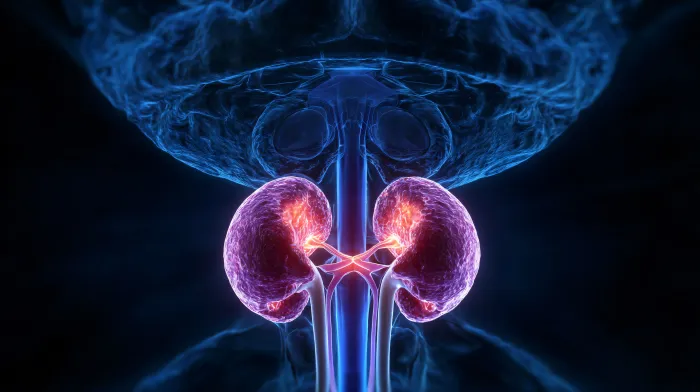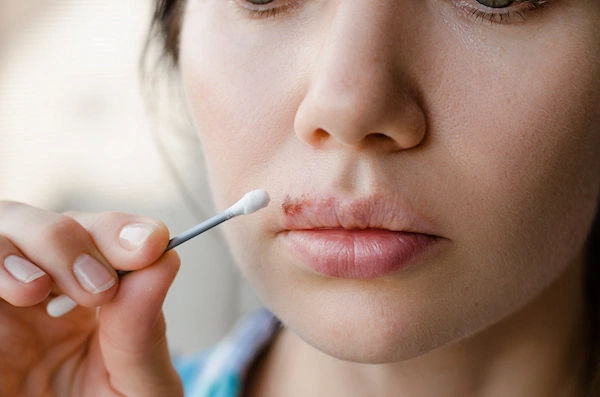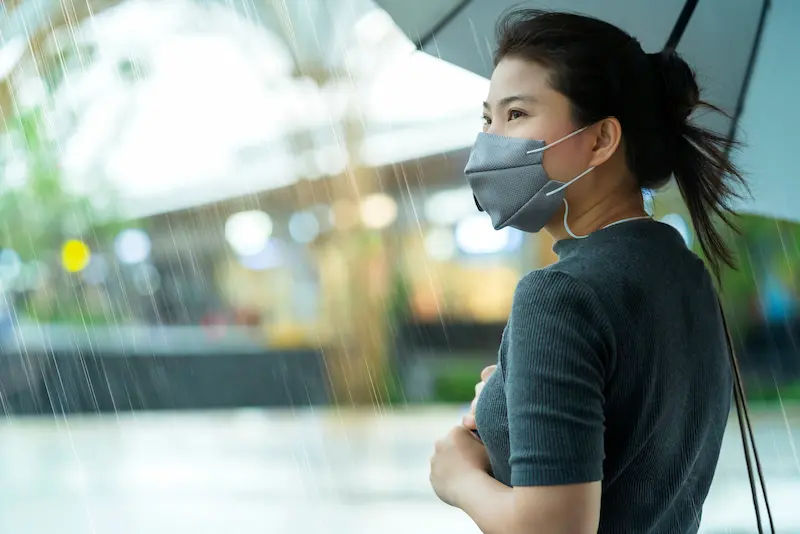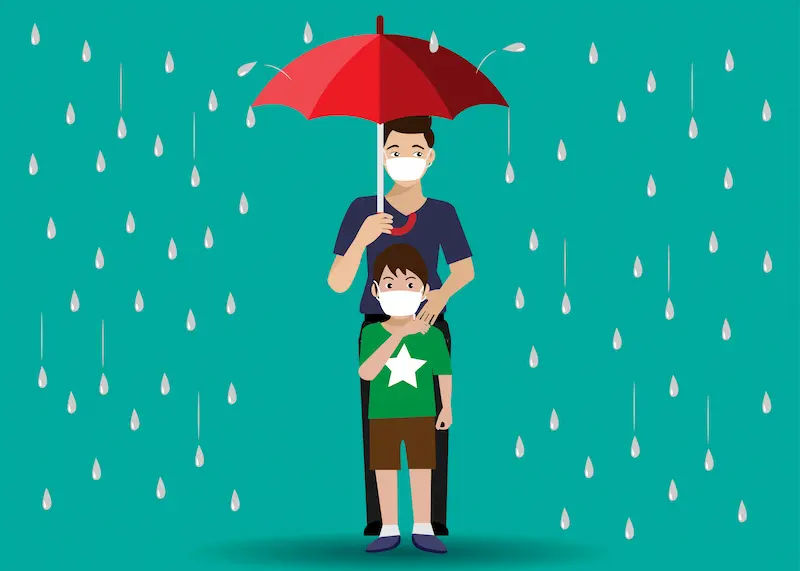Your Complete Guide to Prostate Health and Wellness
Understand the essentials of prostate health, including common conditions, early warning signs, and prevention tips. Learn how to support prostate wellness through lifestyle choices and regular medical checkups.

Written by Dr. J T Hema Pratima
Reviewed by Dr. D Bhanu Prakash MBBS, AFIH, Advanced certificate in critical care medicine, Fellowship in critical care medicine
Last updated on 13th Jan, 2026

Your prostate may be a small, walnut-sized gland, but it plays a monumental role in your overall health and quality of life. Nestled below the bladder, this part of the male reproductive system is often out of sight and out of mind—until something goes wrong. Issues like frequent nighttime urination, a weak stream, or discomfort can be the first signs that your prostate health needs attention. The good news is that with awareness and proactive care, most prostate conditions are highly manageable. This guide is designed to demystify the prostate, explain the common conditions that affect it—from benign enlargement to cancer—and provide you with evidence-based strategies for maintaining its health. We’ll cover everything from understanding early symptoms to the latest on screening and powerful lifestyle changes you can make today. Think of this as your first step toward taking confident control of your well-being.
Understanding the Prostate: Function and Anatomy
So, what exactly does the prostate do? This small, muscular gland is a crucial part of the male reproductive system. Its primary function is to produce prostatic fluid, which is a key component of semen. This fluid nourishes and protects sperm, aiding in their motility and survival after ejaculation. The prostate surrounds the urethra, the tube that carries both urine and semen out of the body. Because of this location, when the prostate becomes enlarged or inflamed, it can directly squeeze the urethra, leading to a variety of urinary symptoms. The health of this gland is influenced by hormones, particularly testosterone, and it naturally changes with age. Understanding its basic role is the foundation for recognising when something might be amiss and needs a professional evaluation, which you can easily initiate by consulting a urologist online with Apollo24|7.
Common Prostate Conditions You Should Know
Most prostate issues fall into one of three categories: enlargement, inflammation, or cancer. It's crucial to understand the differences, as their symptoms can sometimes overlap.
Benign Prostatic Hyperplasia (BPH) - The Enlarged Prostate
Benign Prostatic Hyperplasia, or BPH, is a non-cancerous enlargement of the prostate gland. It is an extremely common part of the ageing process for men. By age 60, over 50% of men will have some signs of BPH, and by 85, that figure rises to 90%. It's important to remember that BPH is not prostate cancer and does not increase your risk of developing cancer, though both conditions can exist simultaneously.
Symptoms of BPH:
The symptoms of BPH are all related to the compression of the urethra and bladder dysfunction. They are often summarised as "voiding" or "storage" symptoms:
Voiding: Weak urine stream, straining to urinate, stopping and starting (hesitancy), dribbling at the end of urination, feeling of incomplete bladder emptying.
Storage: Frequent urination (especially at night, known as nocturia), a sudden, urgent need to urinate, urinary incontinence.
Risk Factors and Causes of BPH:
The primary risk factors are age and family history. While the exact cause isn't fully understood, it's believed to be linked to hormonal changes as men age, particularly changes in the balance of testosterone and estrogen.
2. Prostatitis:
Prostatitis refers to the swelling and inflammation of the prostate gland. Unlike BPH, it can affect men of all ages and is often caused by a bacterial infection, though not always. It is a common reason men visit a urologist.
Types of Prostatitis
Acute Bacterial Prostatitis: A sudden bacterial infection causing severe symptoms like fever, chills, and painful urination. It requires immediate medical treatment.
Chronic Bacterial Prostatitis: A recurring bacterial infection with less severe symptoms but longer duration.
Chronic Prostatitis/Chronic Pelvic Pain Syndrome (CP/CPPS): The most common type. It involves pelvic pain and urinary symptoms without evidence of a bacterial infection. Its cause is often unknown.
Asymptomatic Inflammatory Prostatitis: Inflammation is present but causes no symptoms. It is usually discovered incidentally during testing for other conditions.
Identifying Prostatitis Symptoms
Symptoms can vary but often include: pain or burning during urination (dysuria), difficulty urinating, frequent urination, pain in the abdomen, groin, or lower back, painful ejaculation, and flu-like symptoms (in acute cases).
3. Prostate Cancer: Awareness and Early Detection
Prostate cancer is one of the most common cancers among men. It develops when cells in the prostate gland mutate and begin to multiply uncontrollably. Many prostate cancers grow slowly and may remain confined to the prostate, causing minimal harm. However, some types are aggressive and can spread quickly. Early detection is critical for successful treatment.
Key Prostate Cancer Risk Factors
Age: Risk increases significantly after 50.
Race: Black men have a higher risk than men of other races.
Family History: Having a father or brother with prostate cancer more than doubles your risk.
Genetics: Inherited gene mutations (e.g., BRCA1/2) can increase risk.
Obesity: Obese men may have a higher risk of having a more aggressive cancer.
Early Signs of Prostate Cancer
In its early stages, prostate cancer often causes no symptoms. When symptoms do appear, they can mimic those of BPH, including:
Trouble urinating
Decreased force in the stream of urine
Blood in the urine or semen
Bone pain (especially in advanced stages)
Erectile dysfunction
Because symptoms are not always present, discussing screening options with a doctor is essential.
Consult Top Specialists
Proactive Screening and Diagnosis
If you're experiencing symptoms or are in a high-risk group, proactive screening is your best defence. A modern healthcare approach makes this easier than ever. Apollo24|7 offers convenient home collection for tests like the PSA test, allowing you to take the first step from the comfort of your home.
The Prostate-Specific Antigen (PSA) Test
This is a blood test that measures the level of PSA, a protein produced by both cancerous and noncancerous prostate tissue. A higher-than-normal level can indicate BPH, prostatitis, or prostate cancer. It's not a perfect test, but it's a vital tool. Your doctor will interpret the results in the context of your age, prostate size, and how the level changes over time.
Digital Rectal Exam (DRE)
In this physical exam, a doctor inserts a gloved, lubricated finger into the rectum to feel the prostate gland. They can assess its size, shape, and check for any hard lumps or irregularities that might suggest cancer. The DRE and PSA test together provide a more complete picture than either test alone.
Advanced Diagnostic Procedures
If initial tests suggest an issue, further steps may include:
MRI Fusion Biopsy: A targeted biopsy that uses MRI imaging to guide needles precisely to suspicious areas, increasing accuracy.
Ultrasound: A transrectal ultrasound (TRUS) may be used to visualise the prostate and guide a biopsy needle.
Powerful Lifestyle Habits for a Healthy Prostate
While not all conditions are preventable, a healthy lifestyle is your strongest ally in promoting prostate health and potentially reducing your risk of problems.
The Prostate-Healthy Diet
Research consistently points to the benefits of a whole-foods, plant-forward diet.
Focus on Lycopene: This powerful antioxidant, found in cooked tomatoes (tomato sauce, paste), watermelon, and pink grapefruit, has been linked to a reduced risk of prostate cancer.
Eat Cruciferous Vegetables: Broccoli, cauliflower, cabbage, and Brussels sprouts contain sulforaphane, a compound believed to help protect against cancer.
Choose Healthy Fats: Opt for fats from fish (rich in omega-3s like salmon), avocados, nuts, and olive oil over saturated and trans fats from red meat and processed foods.
Limit Dairy: Some studies suggest a very high intake of dairy products may be associated with a slightly increased risk.
Exercise and Physical Activity
Regular exercise helps maintain a healthy weight, reduces inflammation, and improves immune function. Aim for at least 30 minutes of moderate activity most days. Activities like brisk walking, swimming, and cycling are excellent choices.
Supplements and Vitamins: What the Science Says
Saw Palmetto: Often used for BPH symptom relief, though major studies show mixed results. It may help some men with urinary flow.
Vitamin D: Low levels of Vitamin D have been linked to a more aggressive risk of prostate cancer. Have your levels checked; Apollo24|7 offers convenient home collection for tests like vitamin D.
Zinc: The prostate contains a high concentration of zinc, which is important for its function. However, mega-dosing is not recommended. Get zinc from natural sources like pumpkin seeds, legumes, and nuts.
Conclusion
Taking charge of your prostate health is a lifelong journey of awareness and proactive care. By understanding the role of this vital gland, recognising the signs of potential issues like BPH and prostatitis, and committing to a healthy lifestyle, you empower yourself to maintain not just urinary function, but your overall well-being. Remember, screening is a powerful tool, not something to fear. Open communication with your healthcare provider is the cornerstone of early detection and effective management of any condition. If you have questions about your symptoms or risk factors, don't wait. Consult a doctor online with Apollo24|7 to discuss your concerns and determine the best next steps for your health. Your future self will thank you for the vigilance.
Consult Top Specialists
Consult Top Specialists

Dr. Kunal Kumar Mehar
Urologist
10 Years • Mbbs, Ms, Mch
Bengaluru
Apollo Medical Center, Marathahalli, Bengaluru

Dr. Ramesh H
Urologist
16 Years • MBBS, MS , Mch( Urology)
Bengaluru
Apollo Clinic, JP nagar, Bengaluru
Dr. J Chaithanya
Urologist
6 Years • MBBS MS GENERAL SURGERY MCH UROLOGY
Bengaluru
Apollo Medical Center, Marathahalli, Bengaluru

Dr. Pavan Kumar S K
Urologist
11 Years • MBBS, MS , Mch( Urology) DNB (Urology)
Bengaluru
Apollo Clinic, JP nagar, Bengaluru

Dr Shivakumar M P
General Physician/ Internal Medicine Specialist
31 Years • MBBS MD
Bengaluru
Apollo Clinic, JP nagar, Bengaluru
More articles from General Medical Consultation
Frequently Asked Questions
1. What are the first signs of prostate problems?
The earliest signs often involve changes in urination, such as needing to go more frequently (especially at night), a weak or interrupted urine stream, difficulty starting to urinate, or a feeling that your bladder isn't fully empty. Pain or burning during urination can also be a sign.
2. Can an enlarged prostate be reversed naturally?
While you cannot 'cure' or completely reverse an enlarged prostate (BPH) naturally, you can significantly manage its symptoms through lifestyle changes. Diet, exercise, and avoiding bladder irritants like caffeine and alcohol can reduce urinary frequency and improve flow for many men.
3. At what age should men start getting screened for prostate cancer?
The general recommendation is to start a conversation with your doctor about the risks and benefits of screening at age 50. However, if you are at higher risk (Black ethnicity or a strong family history), this conversation should happen earlier, at age 40 or 45.
4. Does frequent ejaculation improve prostate health?
Some research suggests that regular ejaculation (roughly 21 times per month) may be associated with a lower risk of developing prostate cancer. The theory is that it helps clear the prostate of potential carcinogens. While more research is needed, it is generally considered a healthy practice.
5. Is prostate cancer always fatal?
No, prostate cancer is not always fatal. In fact, the 5-year survival rate for local or regional prostate cancer is nearly 100%. Many prostate cancers grow so slowly that they may never cause symptoms or require treatment beyond active surveillance. The key is catching aggressive forms early through screening.




